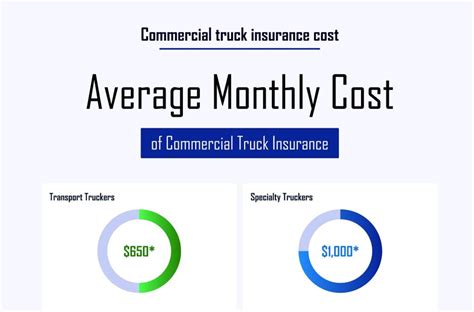Commercial Insurance

Commercial insurance is a vital component of any business's risk management strategy, providing financial protection and stability in an increasingly uncertain and complex business environment. As companies navigate a myriad of challenges, from natural disasters to cyber threats, having the right commercial insurance coverage is essential for their long-term survival and success.
In this comprehensive guide, we will delve into the world of commercial insurance, exploring its various facets and highlighting its importance for businesses of all sizes and industries. We will examine the different types of coverage available, the key considerations when selecting policies, and the impact of commercial insurance on a company's overall resilience and growth potential.
Additionally, we will showcase real-world examples of how commercial insurance has played a pivotal role in mitigating risks and supporting businesses through challenging times, offering a practical perspective on its value and relevance.
Understanding Commercial Insurance: A Comprehensive Overview

Commercial insurance, often referred to as business insurance, is a specialized form of insurance designed to protect businesses against a wide range of risks and liabilities. It serves as a financial safety net, providing coverage for potential losses arising from various events, including property damage, legal liabilities, and operational disruptions.
The importance of commercial insurance cannot be overstated, as it plays a critical role in safeguarding a company's assets, reputation, and continuity. By transferring the financial burden of unexpected events to insurance carriers, businesses can focus on their core operations and strategic growth initiatives with greater confidence and stability.
Here's a detailed look at the key components and considerations of commercial insurance:
Types of Commercial Insurance Coverage
Commercial insurance policies come in various forms, each tailored to address specific risks and needs. Here’s an overview of some of the most common types of coverage:
- Property Insurance: This coverage protects a business's physical assets, including buildings, equipment, inventory, and other tangible property. It provides financial compensation in the event of damage or loss due to fires, storms, vandalism, or other covered perils.
- Liability Insurance: Liability coverage is a critical aspect of commercial insurance, protecting businesses from financial losses arising from legal claims and lawsuits. It can cover a wide range of liabilities, including product liability, professional liability (errors and omissions), and general liability for accidents or injuries on business premises.
- Business Interruption Insurance: Also known as business income insurance, this coverage steps in when a business is forced to suspend operations due to a covered event, such as a fire or natural disaster. It provides financial support to cover ongoing expenses and lost income during the recovery period.
- Workers' Compensation Insurance: Workers' comp is mandated by law in most states and provides coverage for employees who suffer work-related injuries or illnesses. It pays for medical expenses, lost wages, and rehabilitation costs, protecting both employees and the business from potential legal liabilities.
- Cyber Insurance: With the increasing prevalence of cyber threats, cyber insurance has become a crucial component of commercial insurance portfolios. It provides coverage for data breaches, cyber attacks, and other digital risks, including financial losses, legal fees, and the cost of restoring systems and data.
- Commercial Auto Insurance: Businesses that use vehicles for commercial purposes, such as delivery services or field sales teams, need commercial auto insurance. This coverage protects against financial losses resulting from accidents, theft, or damage to company vehicles.
- Umbrella Insurance: Umbrella policies provide additional liability coverage beyond the limits of a business's primary policies. They offer an extra layer of protection for catastrophic losses and can cover a wide range of liabilities, including those not specifically addressed by other policies.
Key Considerations When Selecting Commercial Insurance Policies
Choosing the right commercial insurance policies involves a careful assessment of a business’s unique risks and needs. Here are some key factors to consider:
- Risk Assessment: Conduct a thorough risk assessment to identify the potential hazards and liabilities specific to your business. Consider factors such as location, industry, size, and the nature of your operations.
- Coverage Limits: Ensure that your policies provide adequate coverage limits to protect your business from significant financial losses. Consider the potential cost of a major event or claim and select limits that align with your risk tolerance and financial capacity.
- Deductibles and Co-Insurance: Deductibles and co-insurance clauses can impact your out-of-pocket expenses in the event of a claim. Assess your financial capabilities and risk appetite to determine the appropriate deductible and co-insurance levels for each policy.
- Policy Exclusions: Carefully review the exclusions listed in each policy to understand the specific risks that are not covered. Work with your insurance broker to identify any gaps in coverage and address them through additional policies or endorsements.
- Claims Handling and Service: The quality of an insurance provider's claims handling and customer service can significantly impact your experience as a policyholder. Research the insurer's reputation and track record in handling claims efficiently and fairly.
- Cost-Effectiveness: While cost is an important consideration, it should not be the sole factor in your decision-making process. Balance the premium cost with the coverage provided and the insurer's financial stability to ensure you are getting the best value for your business's specific needs.
The Impact of Commercial Insurance on Business Resilience
Commercial insurance plays a pivotal role in enhancing a business’s resilience and ability to weather various challenges and disruptions. Here’s how it contributes to overall business resilience:
- Financial Protection: By transferring the financial risks associated with various events to insurance carriers, commercial insurance provides a critical layer of financial protection. This allows businesses to absorb losses without compromising their financial stability or operational capabilities.
- Business Continuity: Certain types of commercial insurance, such as business interruption coverage, are specifically designed to support business continuity during and after disruptive events. By providing financial support during the recovery period, these policies help businesses maintain operations and minimize downtime.
- Risk Management: Commercial insurance policies are often accompanied by risk management services and resources. Insurers may offer guidance on identifying and mitigating risks, implementing safety protocols, and developing emergency response plans, all of which contribute to a more robust risk management framework.
- Legal and Regulatory Compliance: Certain types of commercial insurance, such as workers' compensation and professional liability, are mandated by law or industry regulations. By ensuring compliance with these requirements, businesses can avoid legal penalties and maintain their operational licenses.
- Reputation Protection: Commercial insurance, particularly liability coverage, helps protect a business's reputation by providing financial support in the event of lawsuits or legal claims. This can be crucial for maintaining customer trust, preserving brand value, and retaining key stakeholders.
Real-World Examples: Commercial Insurance in Action

Commercial insurance plays a critical role in protecting businesses across various industries and sectors. Here are some real-world examples of how commercial insurance has made a tangible difference in mitigating risks and supporting business recovery:
Case Study 1: Natural Disaster Recovery
Hurricane Katrina, which struck the Gulf Coast in 2005, caused widespread devastation and left many businesses in ruins. However, those with comprehensive commercial insurance coverage were better equipped to recover and rebuild.
For instance, a local restaurant in New Orleans had invested in property insurance, business interruption coverage, and liability insurance. When the hurricane hit, their restaurant was severely damaged, but the insurance policies provided the financial resources needed to repair the building, replace equipment, and cover lost income during the extended recovery period.
Without this insurance coverage, the restaurant would have faced significant financial challenges and potentially struggled to reopen, impacting not only the business owners but also their employees and the local community.
Case Study 2: Cyber Attack Mitigation
In today’s digital age, cyber threats are a constant concern for businesses of all sizes. A small e-commerce company, for example, fell victim to a ransomware attack, which encrypted their critical systems and data.
Fortunately, the company had invested in cyber insurance, which covered the costs of ransomware negotiations, data restoration, and business interruption during the recovery process. The insurance policy also provided access to cyber security experts who helped the company enhance its digital defenses and mitigate future risks.
Without cyber insurance, the small business would have faced substantial financial losses and potentially had to cease operations due to the impact of the attack.
Case Study 3: Professional Liability Protection
A consulting firm specializing in financial services was faced with a legal claim alleging negligence in their advice to a client. The client sought substantial damages, which could have severely impacted the firm’s financial stability and reputation.
However, the consulting firm had procured professional liability insurance, also known as errors and omissions (E&O) insurance. This policy provided coverage for the legal defense costs and any damages awarded, up to the policy limits. It also offered crisis management support to help the firm navigate the legal process and mitigate potential reputational damage.
Thanks to their professional liability insurance, the consulting firm was able to resolve the claim without significant financial strain and maintain their standing in the industry.
Conclusion: The Importance of Commercial Insurance for Business Resilience
Commercial insurance is an indispensable tool for businesses seeking to protect their assets, manage risks, and ensure long-term resilience. By understanding the various types of coverage available and carefully selecting policies that align with their unique needs, businesses can navigate an increasingly uncertain world with greater confidence and stability.
Whether it's recovering from a natural disaster, mitigating cyber threats, or managing legal liabilities, commercial insurance provides a critical safety net, enabling businesses to focus on their core strengths and pursue strategic growth opportunities. As the business landscape continues to evolve and new risks emerge, having the right commercial insurance coverage will remain a cornerstone of effective risk management and business success.
What are the key benefits of commercial insurance for small businesses?
+Commercial insurance offers small businesses crucial protection against various risks, including property damage, liability claims, and business interruption. It provides financial stability, allowing small businesses to recover from unexpected events and maintain operations. Additionally, commercial insurance can enhance a business’s reputation and attract clients by demonstrating a commitment to risk management.
How can I determine the right amount of coverage for my business?
+Determining the appropriate coverage amount involves a comprehensive risk assessment. Consider factors such as your business’s size, location, industry, and potential risks. Work with an insurance broker to evaluate your unique needs and select policies with adequate coverage limits to protect your business effectively.
Are there any tax benefits associated with commercial insurance premiums?
+Yes, commercial insurance premiums can be tax-deductible expenses for businesses. Consult with a tax professional to understand the specific tax implications and eligibility criteria for deducting insurance premiums in your jurisdiction.
How often should I review and update my commercial insurance policies?
+Regularly reviewing and updating your commercial insurance policies is essential to ensure they remain aligned with your business’s evolving needs. Aim to review your policies annually or whenever significant changes occur, such as business growth, expansion into new markets, or changes in regulatory requirements.


